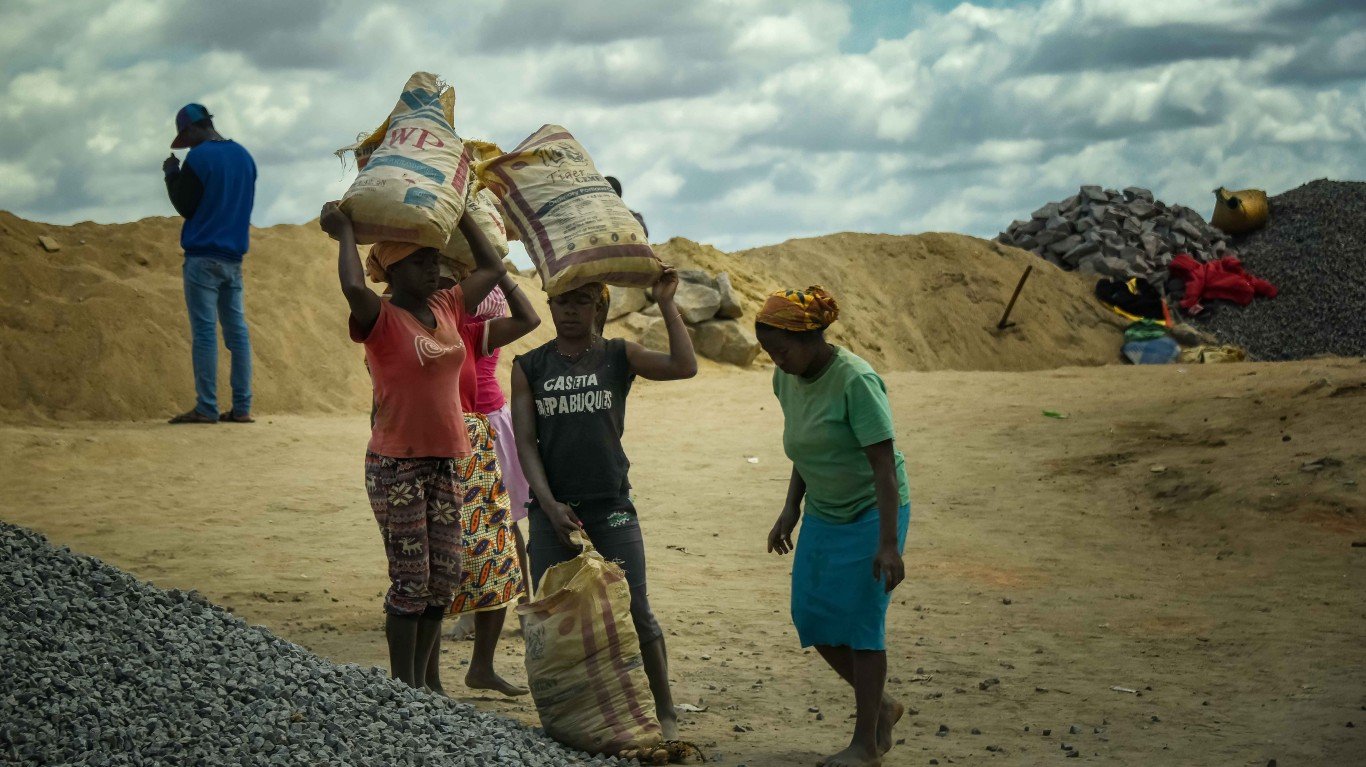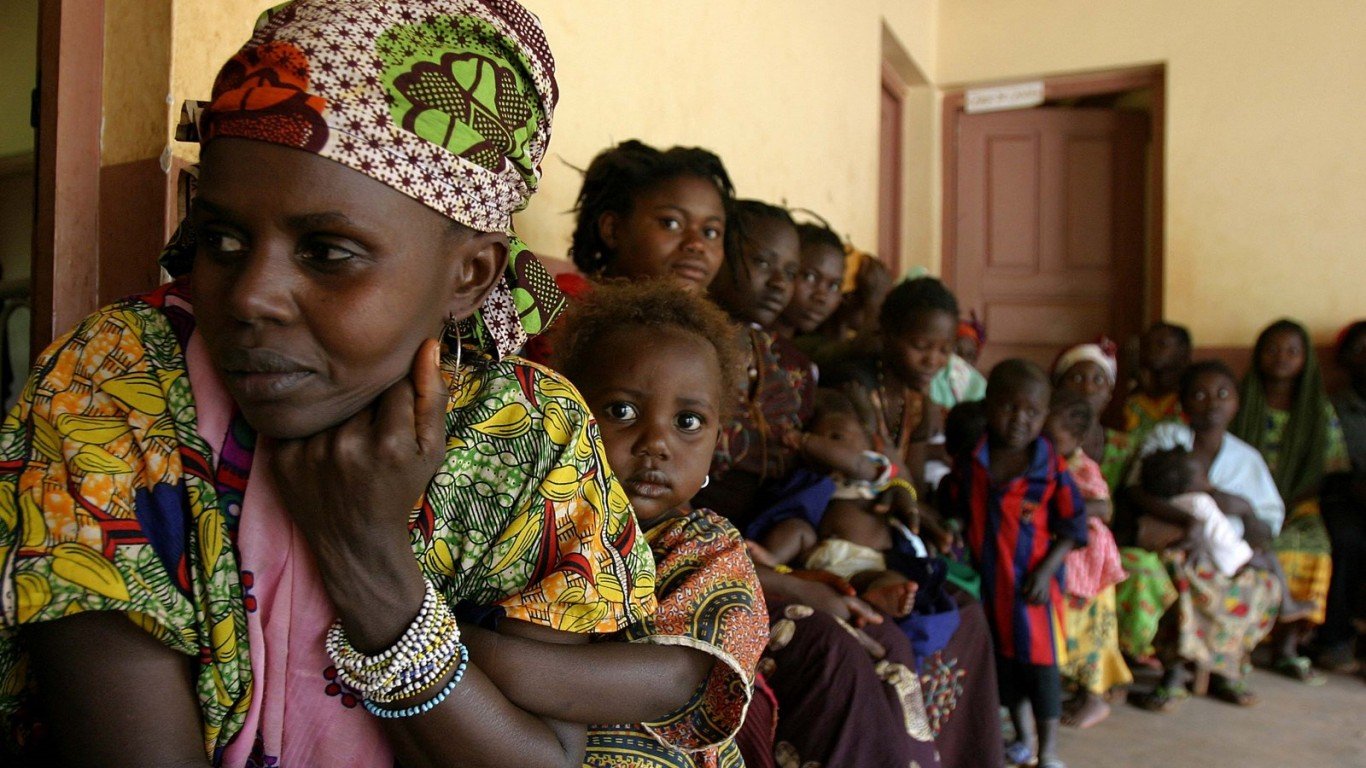15. Madagascar
> Women Peace and Security Index (0 worst to 1 best): 0.578
> Women’s mean years of education: 6.4, #53 worst of 170 countries
> Pct. of women w/bank account: 16.3%, #14 worst of 170 countries
> Absence of legal discrimination (0 worst to 100 best): 74.4 – #55 worst of 170 countries
> GDP per capita, 2021: $501, #9 lowest of 170 countries
> Population, 2021: 28,915,653 (females: 14,424,717, 49.9%)
Some progress on women’s rights has been achieved in Madagascar, with the gender equality group U.N. Women estimating that in 2018 about two out of three women of reproductive age had access to modern family planning methods. However, about 40% of women aged 20-24 were married as girls. Based on the 2021 WPS Index, just 39% of women in Madagascar use cell phones, the fourth lowest share worldwide, while more than a third of them have been targets of intimate partner violence, the third highest share worldwide.
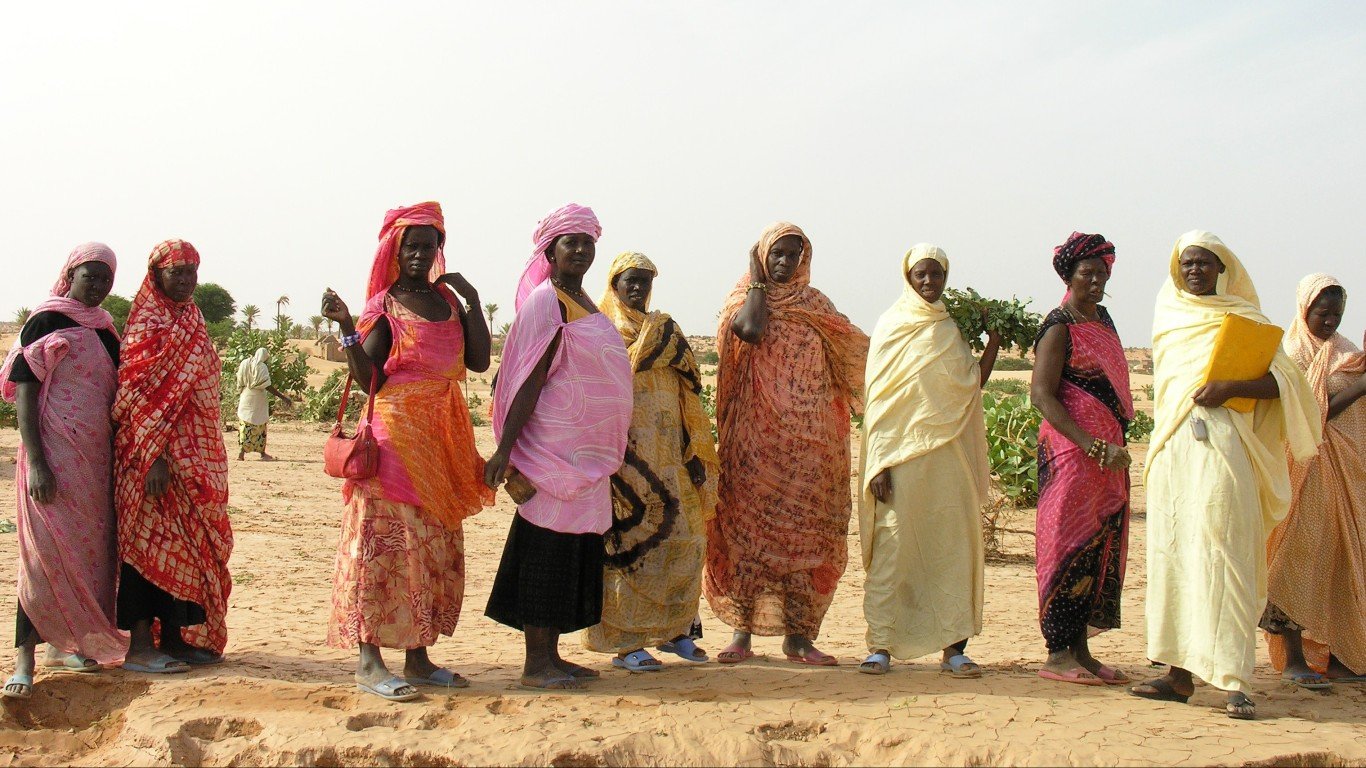
14. Mauritania
> Women Peace and Security Index (0 worst to 1 best): 0.577
> Women’s mean years of education: 3.8, #20 worst of 170 countries
> Pct. of women w/bank account: 15.5%, #12 worst of 170 countries
> Absence of legal discrimination (0 worst to 100 best): 48.1 – #15 worst of 170 countries
> GDP per capita, 2021: $2,166, #47 lowest of 170 countries
> Population, 2021: 4,614,974 (females: 2,354,385, 51.0%)
Human Rights Watch reported in 2019 that a lack of strong laws and social pressures “dissuade women and girls from seeking help and remedies when they are abused” in Mauritania. Rapes go underreported because the law leaves open the risk that female rape survivors could be prosecuted for having sex outside of marriage. Only about 31% of Mauritian women are employed,while nearly one in five have reported being targeted for intimate partner abuse.
13. Central African Republic
> Women Peace and Security Index (0 worst to 1 best): 0.577
> Women’s mean years of education: 3.0, #14 worst of 170 countries
> Pct. of women w/bank account: 9.7%, #7 worst of 170 countries
> Absence of legal discrimination (0 worst to 100 best): 76.9 – #68 worst of 170 countries
> GDP per capita, 2021: $461, #6 lowest of 170 countries
> Population, 2021: 5,457,154 (females: 2,728,875, 50.0%)
Along with low rates of financial inclusion and years of education, women in the Central African Republic have little parliamentary representation. Though the 2021 WPS Index says “improvements were attained in the security dimension,” political violence still disproportionately targets C.A.R. women. “Many more women [than men] are attacked during an election campaign,” Beatrice Epaye, an MP and women’s rights advocate, told the GIWPS in a 2022 interview.
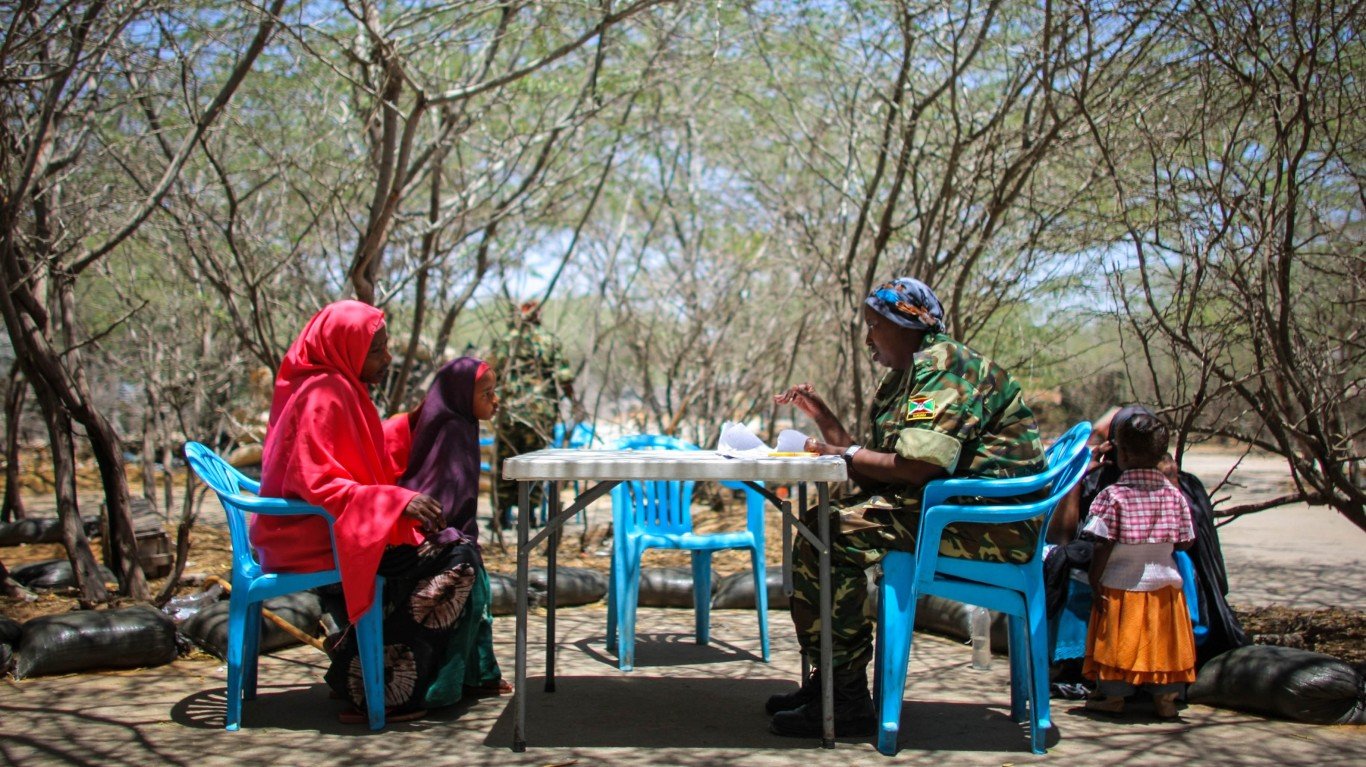
12. Somalia
> Women Peace and Security Index (0 worst to 1 best): 0.572
> Women’s mean years of education: 4.3, #31 worst of 170 countries
> Pct. of women w/bank account: 33.7%, #48 worst of 170 countries
> Absence of legal discrimination (0 worst to 100 best): 47.0 – #14 worst of 170 countries
> GDP per capita, 2021: $447, #5 lowest of 170 countries
> Population, 2021: 17,065,581 (females: 8,509,953, 49.9%)
The organization U.N. Women reported that virtually all Somali girls and women age 15-49 have been subjected to female genital mutilation. The 2021 WPS Index estimates that only about one in five Somali women are employed, while about the same percentage report having been abused by an intimate partner. In 2020, Somalia’s parliament sparked outrage for replacing legislation to protect women and children from violence with a bill permitting child and forced marriages.
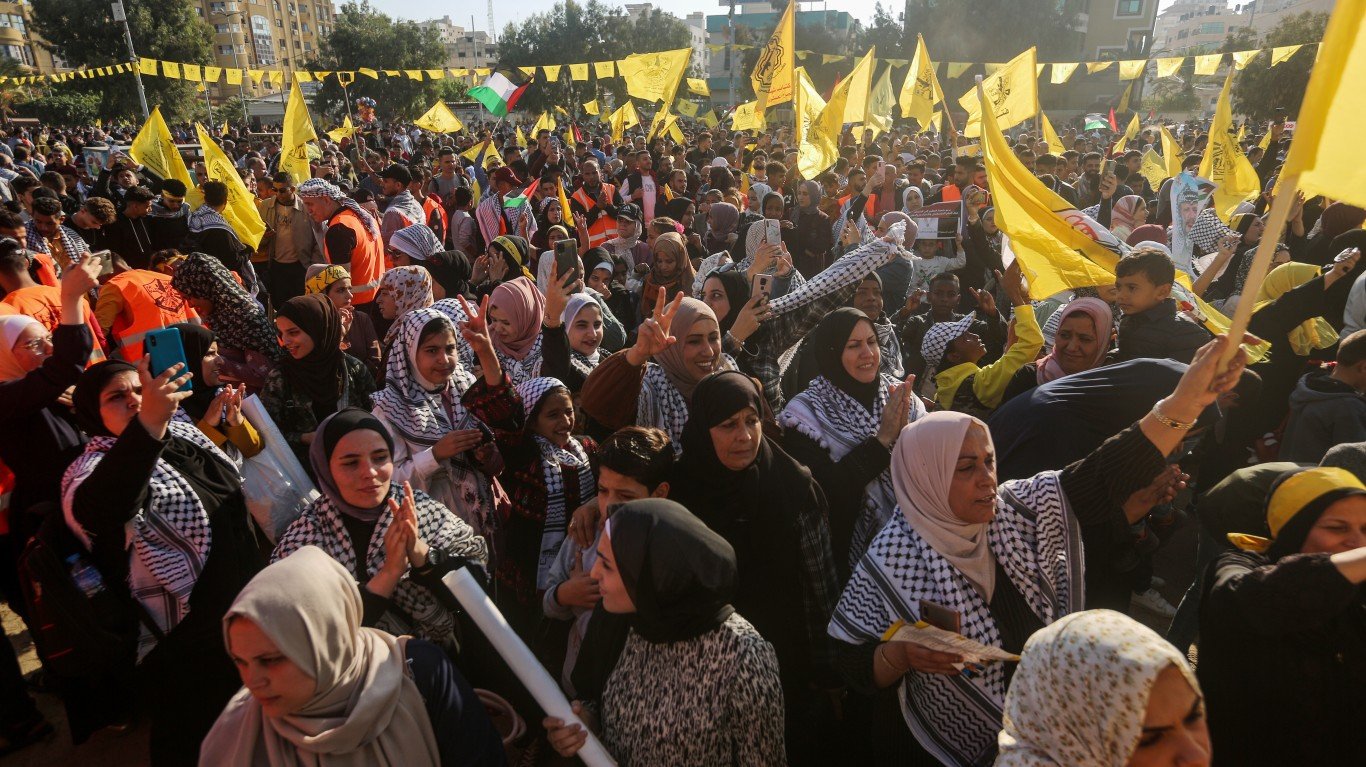
11. Palestine
> Women Peace and Security Index (0 worst to 1 best): 0.571
> Women’s mean years of education: 9.4, #90 worst of 170 countries
> Pct. of women w/bank account: 16.0%, #13 worst of 170 countries
> Absence of legal discrimination (0 worst to 100 best): 26.3 – #1 worst of 170 countries
> GDP per capita, 2021: $3,664, #63 lowest of 170 countries
> Population, 2021: 5,483,450 (females: 2,697,221, 49.2%)
While Palestine remains under “Israeli military occupation and discriminatory rule” that constitutes apartheid, per Amnesty International, the human rights group also points to internal corruption and discrimination in the West Bank and Gaza Strip. In 2021, “women enjoyed fewer rights than men in relation to divorce, custody of children and inheritance, and violence against women increased. Relatives attacked women who refused to give up their inheritance or sued for other rights relating to personal status, with inadequate protection from the authorities.” Indeed, Palestine ranks as the worst country in terms of legal discrimination against women in the WPS index.
